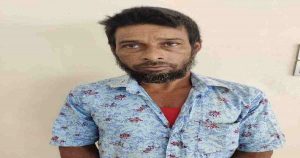The Saudi authorities have allowed Bangladeshis to transfer iqama paving the way for Bangladeshis to take advantage of the legal work and changing their professions, Foreign Minister Dr Dipu Moni said here on Saturday.
“It’s big news for us. Lakhs of Bangladeshis are there in Saudi Arabia. We came to know about it on Friday night. The Saudi King gave three months’ time (to avail of the opportunity),” she told a press conference at Chandpur Circuit House.
Some 12 lakh Bangladeshis are currently working in Saudi Arabia. The present government has been sending workers to 157 countries of the world, it sent 21,49,466 people with jobs in different countries during January 2009-March 2013.
The Foreign Minister said Bangladeshi workers will also get the chance to change their professions, and if anybody does not get job and stays there illegally, amnesty has been offered for them.
Dipu Moni said Bangladeshis were being deprived of transferring iqama and this facility has been made available for the citizens of all countries, which was a long desire for Bangladeshis.
She said there has been no gap with the Saudi authorities and the Bangladesh government, and both sides have made a progress a lot in terms of migration process.
Turning to political issue, Dipu Moni said the opposition is spreading lies over the death toll during law enforcers’ drive in Motijheel. “With their lies, they’re trying to soil the country’s image.”
On Friday, the Saudi authorities announced a waiver of fines and exemption from penalties for all expatriates who violated the residency and labour regulations before April 6, 2013.
The Saudi Ministries of Interior and Labour have called on all sponsoring enterprises and individuals, as well as sponsored expatriates, to quickly rectify violations of their related residency and work permits, taking advantage of new exemptions and facilities before the expiration of the period offered by the Custodian of the Two Holy Mosques King Abdullah bin Abdulaziz Al Saud, which falls on July 3.
In a joint statement, the two ministries confirmed that the inspection campaign will resume soon after the deadline to enforce the labor and immigration laws, according to Ministry of Interior, Kingdom of Saudi Arabia.
A violating expatriate who opts to leave for good during the grace period will be exempted from the iqama charges, labour licence, punishments and fines related to his or her violations on the previous period. However, s/he will be finger stamped; if it happened that s/he was not stamped before, taking in mind that such a measure will not bar him/her from coming back to Saudi Arabia for work, if s/he was properly recruited anew.
The infiltrators, who crossed the border illegally, will not be covered by the exemptions, the statement said.
All expatriates who violated residency and labor laws before April 6, 2013 will be allowed to correct their status and stay in the Kingdom for work without facing any penalties and paying and fines, said the ministries in a statement carried by the Saudi Press Agency (SPA).
Those violators who wish to leave the Kingdom for good during the grace period will be exempted from paying the fees of residency permit, employment license, and the penalties and fines imposed on them.
Fingerprints will be taken from those who have not been fingerprinted. But doing so will not prevent them from entering the Kingdom again on a new visa, assured the ministries.
Expatriates facing huroob (runaway) cases or with expired residency permits may correct their status by either going back to work with the same sponsors or transferring sponsorship to another employer without the need to obtain their current sponsor’s permission. But they are not allowed to transfer sponsorship to any employer who has 10 or more employees because
in that case the green-zone business will fall into the yellow category.
Each green-zone small business can accept expatriates till the transfer does not raise the number of non-Saudi workers to more than nine.
Any financial disputes between the sponsor and the worker will be settled through pertinent legal authorities.
Surprisingly, the ministries allowed even those who came to perform Hajj or Umrah before July 3, 2008 and overstayed their visas to correct their status and do domestic work or take employment with the private sector.
The grace period and exemptions do not apply to those who entered the Kingdom illegally.
Earlier, Deputy Premier and Minister of Defence of the Kingdom of Saudi Arabia Prince Salman Bin Abdulaziz assured Foreign Minister Dr Dipu Moni of taking necessary measures to facilitate iqama transfer of Bangladeshi workforce in the Kingdom.
Foreign Minister Dr Dipu Moni, who is in Jeddah last week, was informed about it when she met the Crown Prince and Deputy Premier on Saturday and requested him to allow Bangladesh workforce to transfer their iqama. (Source: UNB)




